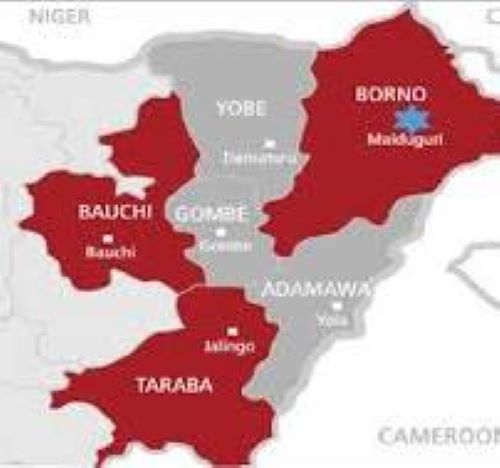Germany has committed €20 million for the second phase of a resilience and peacebuilding programme in Nigeria’s North-East, aimed at expanding access to essential services and strengthening food security and community resilience.
This was disclosed in a joint statement issued in Damaturu on Thursday by Folashade Adebayo and Chi Lael, Communications Officers of the United Nations Children’s Fund (UNICEF) and the World Food Programme (WFP), respectively.
According to the statement, the funding is being provided by the German Federal Ministry for Economic Cooperation and Development (BMZ) through KfW Development Bank, and will be implemented by UNICEF and WFP in collaboration with the governments of Borno and Yobe states.
“The second phase will build on the successes of the first, by increasing access to essential services, food security, and peacebuilding initiatives, reaching more than 200,000 people,” the statement said.
The expanded programme will now cover four additional local government areas: Bama and Konduga in Borno, and Potiskum and Jakusko in Yobe.
The project will deliver a range of essential services and resilience-focused interventions, including child protection, food security, access to safe water, nutrition support, education and vocational skills for out-of-school children, promotion of locally produced nutritious foods, strengthened food systems, conditional cash transfers, livelihood opportunities, environmental regreening, and the establishment of peace clubs in schools.
“Food insecurity in Northeast Nigeria remains one of the most critical challenges, worsened by climate change and economic hardship,” said David Stevenson, WFP Country Director in Nigeria.
He noted that thanks to Germany’s support, climate-adaptive food systems have been revitalised, enhancing nutrition and economic resilience among vulnerable populations.
“Phase II will ensure these gains are extended to more communities in Borno and Yobe,” he added.
The first phase of the programme benefitted over 150,000 people, including children under five, pregnant and breastfeeding women, out-of-school children, and food-insecure households.
Key accomplishments included construction or rehabilitation of over 60 solar-powered boreholes and 18 hand pump boreholes, providing safe water to nearly 300,000 people; re-enrolment of nearly 40,000 out-of-school children into formal and informal education systems; and support for over 6,000 smallholder farmers with drought-resistant seeds and solar-powered irrigation pumps.
Cristian Munduate, UNICEF Nigeria Representative, expressed appreciation for Germany’s continued investment in the well-being of vulnerable communities in Northeast Nigeria.
“We are deeply grateful for the German government’s support in safeguarding children and enhancing community resilience in Borno and Yobe,” Munduate said.
The programme’s next phase aims to sustain and scale these interventions, helping communities recover, thrive, and become more resilient in the face of future challenges.


